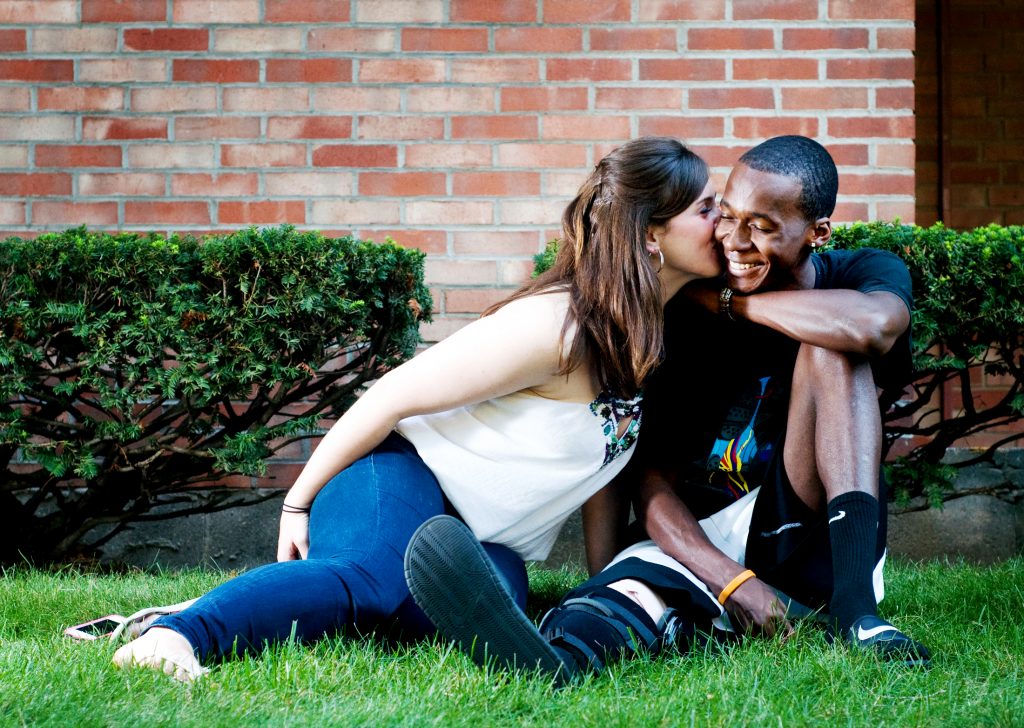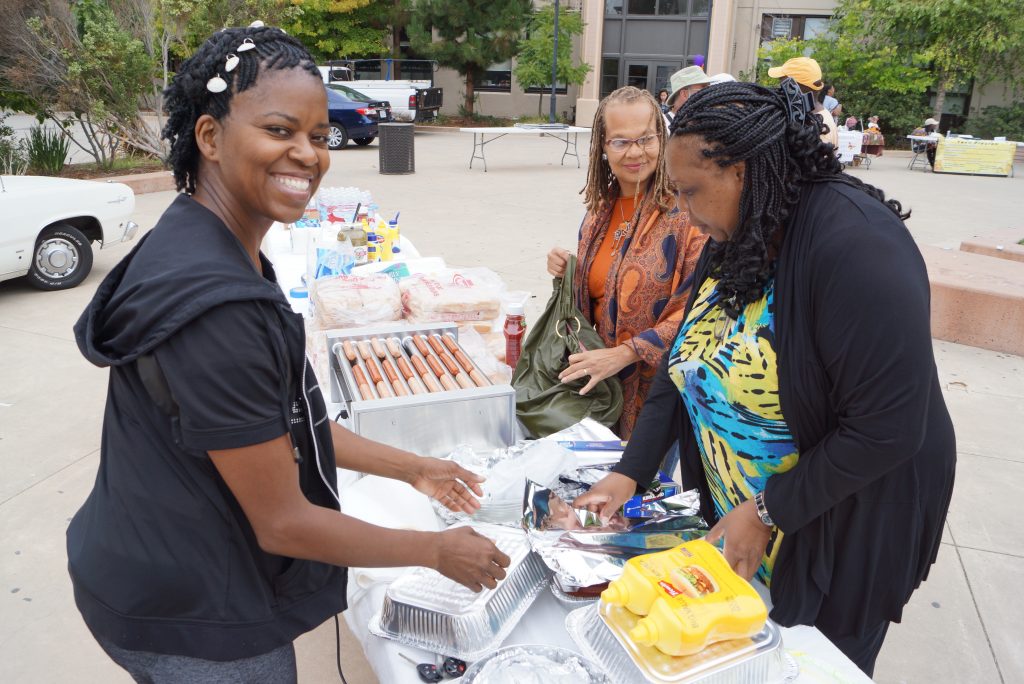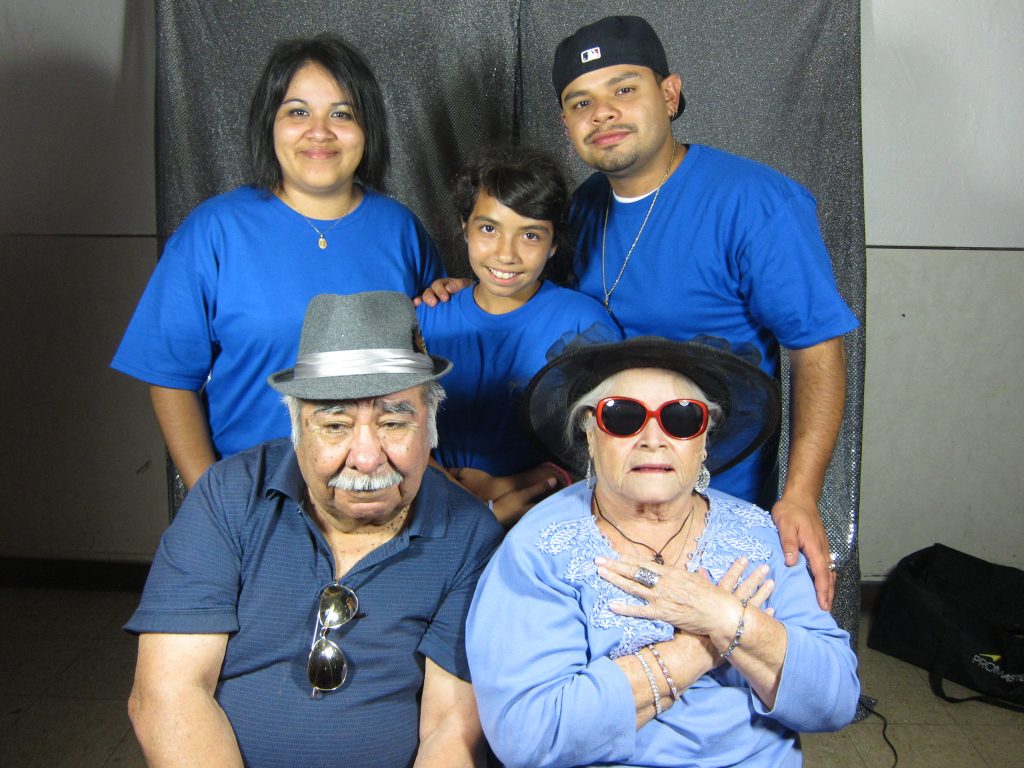Looking Ahead
Nyssa Cronin
We are a social species. Familial roles can be expanded beyond the perimeters of legal definitions and regarded in a much broader sense that can include friendships, sexual relationships, caregiving, social support, partnering and more. The people we interact with on a daily basis have been influenced by many factors, including where we live, our socioeconomic status, and the attachments that we formed in early childhood. This complicated network of influencing factors within our relationships contributes to societal disparities and inequities, a factor that we have strived to make more visible through this text.
- Fig. 5.19. Gay Pride event
- Fig. 5.20. Cuddling couple
Kinship, partnerships, and familial relationships contribute to health benefits as described in the first section of this chapter. These interactions and connections also contribute to the joy and empathy of shared experience. Families and kinship groups come together to laugh, to reminisce, to learn, to compete, to build, and to play. Facing adversity together can strengthen ties and build purpose.
- Fig. 5.21. Family reunion
- Fig. 5.22. Family Joy
- Fig. 5.23. Family Reunion
We aspire to understand the ways that labels, definitions, and policies weaken kinship formations. Simultaneously, we celebrate and support the love and joy that families can produce, maintain, and grow.
Licenses and Attributions
Open Content, Shared Previously
Figure 5.19. “Gay Pride” by Dave Pitt. License: CC BY-NC-ND 2.0.
Figure 5.20. “Interracial Couple” by mattradickal. License: CC BY-NC 2.0.
Figure 5.21. “BUSD Black Family Reunion 2013-14 008 by Mark Coplan’s Berkeley Public School Photos. License: CC BY-NC-SA 2.0.
Figure 5.22. “airtime – jumping for joy” by *vlad*. License: CC BY-NC 2.0
Figure 5.23. “Family Reunion October 2011 374” by calvinfleming. License: CC BY-NC-SA 2.0.
The combination of one’s social and economic status, specifically related to income, education, and career or job status.
Lack of fair treatment, opportunity, or conditions.
The social structure that ties people together (whether by blood, marriage, legal processes, or other agreements) and includes family relationships.






